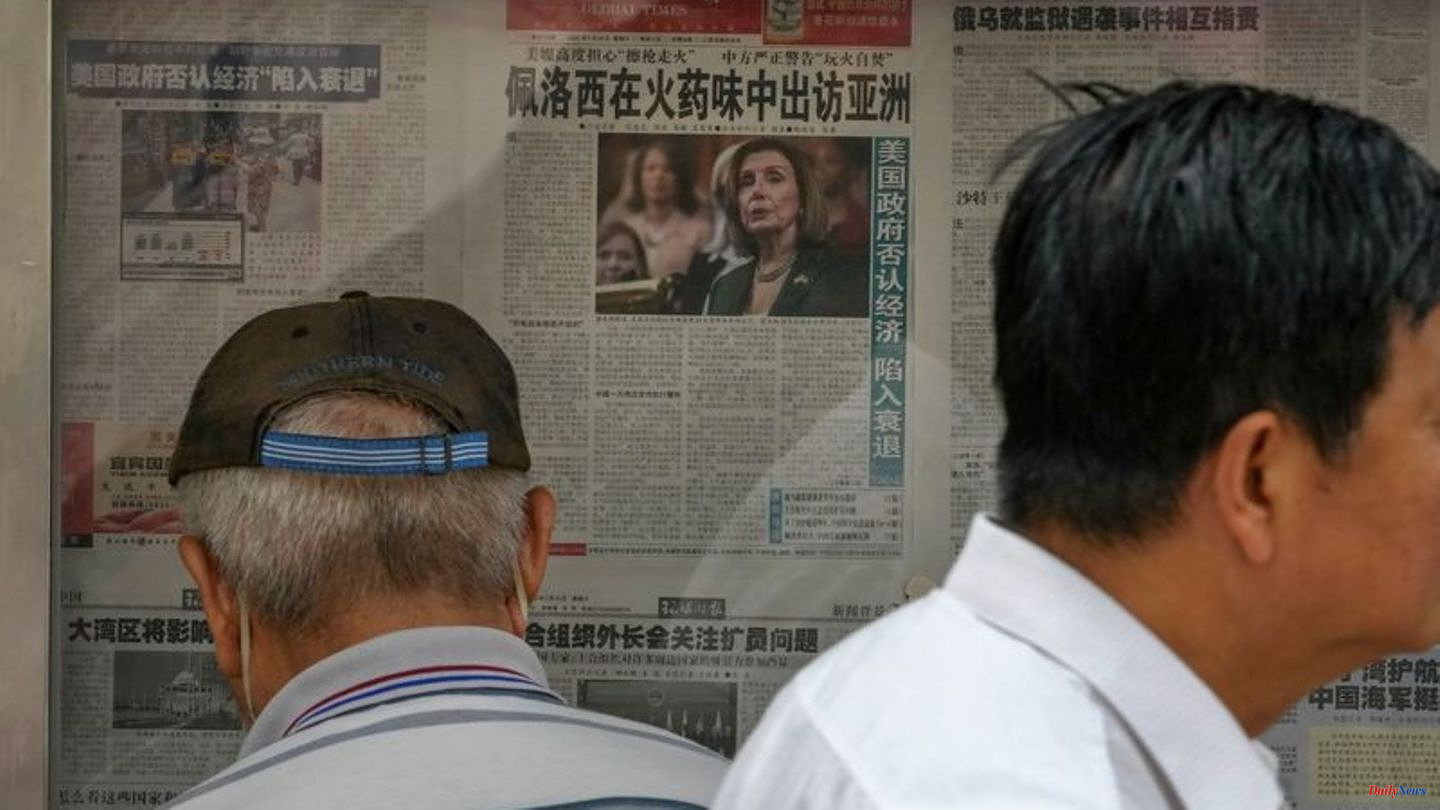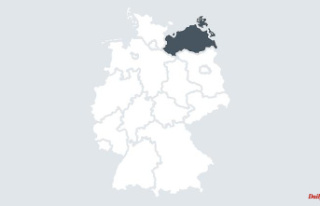In the tensions surrounding Taiwan, concerns are growing about an escalation and the consequences of a conflict for the economy in Germany and worldwide. China again warned the United States on Monday of a "very serious situation and consequences" should US House of Representatives Nancy Pelosi visit Taiwan this week. The 82-year-old top politician began her trip to Asia on Monday in Singapore. Other announced stops are Malaysia, Japan and South Korea.
Although democratic Taiwan is not on their itinerary, Beijing fears that Pelosi could ignore his warnings. China's leadership regards Taiwan as part of the People's Republic and firmly rejects official contacts from other countries to Taipei. On the other hand, Taiwan, which has a population of 23 million, has long considered itself independent. A visit by the US's No. 3 would be the highest-ranking US visit to Taipei in decades.
German foreign politicians warned of an escalation. The pressure is growing because a change of strategy could be imminent at the party conference of the Chinese Communist Party in the fall, said FDP parliamentary group leader Alexander Graf Lambsdorff of the "Rheinische Post". "Should Chinese President Xi Jinping contemplate an attack on Taiwan, the US would have to decide whether to intervene or not." An attack would have "catastrophic consequences for our economy."
A Chinese attack on Taiwan could come much earlier than previously assumed, said the CDU foreign policy expert Roderich Kiesewetter in the newspaper. He fears that China is watching very closely how the West is dealing with Russia. "The Chinese government could see a strategic advantage in an earlier attack because the West is currently tying up a lot of capacity in the Russia conflict."
Beijing: China is prepared for anything
A visit to Taiwan by Pelosi would be "blatant interference in China's internal affairs," Beijing foreign ministry spokesman Zhao Lijian warned. China is prepared for anything. "The People's Liberation Army will not stand by, and the Chinese side will certainly take vigorous and decisive action to protect our sovereignty and territorial integrity." He did not give details. "Let's see if she insists on the visit."
On the first stop of her Asia trip in Singapore, the top US politician met President Halimah Yacob and Premier Lee Hsien Loong. After a visit to Malaysia, she is expected in Seoul on Thursday, prompting speculation that she might make a stopover in Taiwan first. The US broadcaster CNN, citing a Taiwanese and a US government official, reported that a visit to Taiwan was "expected". The Pentagon monitors Chinese movements and works "around the clock" on plans for the security of the high politician.
The democrat Pelosi has been planning to visit free Taiwan for some time in order to take a stand against the threats from Beijing. However, US President Joe Biden also reacted cautiously to the reported visit plans and said that the US military did not think it was a good idea at the moment. Tensions around Taiwan have not been this high since the 1990s.
Worries about invasion after Russian invasion increased
The Russian invasion of Ukraine has also fueled fears that China could take the island's democratic republic by force in a similar manner. China's head of state and party leader Xi Jinping sees it as his historic mission to implement "unification" and is threatening conquest.
The US, in turn, has committed itself to Taiwan's ability to defend itself - which has so far mostly meant arms deliveries. But Biden has gone further than his predecessors, repeatedly calling it a US “duty” to defend Taiwan in the event of a Chinese attack. A war over the industrially well-developed Taiwan - the number 22 of the largest economies - would have serious repercussions on the German and global economy.
A lack of semiconductors would have serious consequences
A third of the world's semiconductor production comes from Taiwan, emphasized the FDP politician Lambsdorff. "With us, almost all supply chains in industry would be affected, many technical products could no longer be manufactured. From washing machines to airplanes." He added: "It is in our best interest that there is no parallel conflict between Russia and Ukraine and between China and Taiwan."
Semiconductors can be found almost everywhere today, for example in smartphones, computers, cars or medical devices. A shortage had led to price increases and supply chain problems in many industries during the corona pandemic. Taiwanese companies in particular have large manufacturing capacities.












